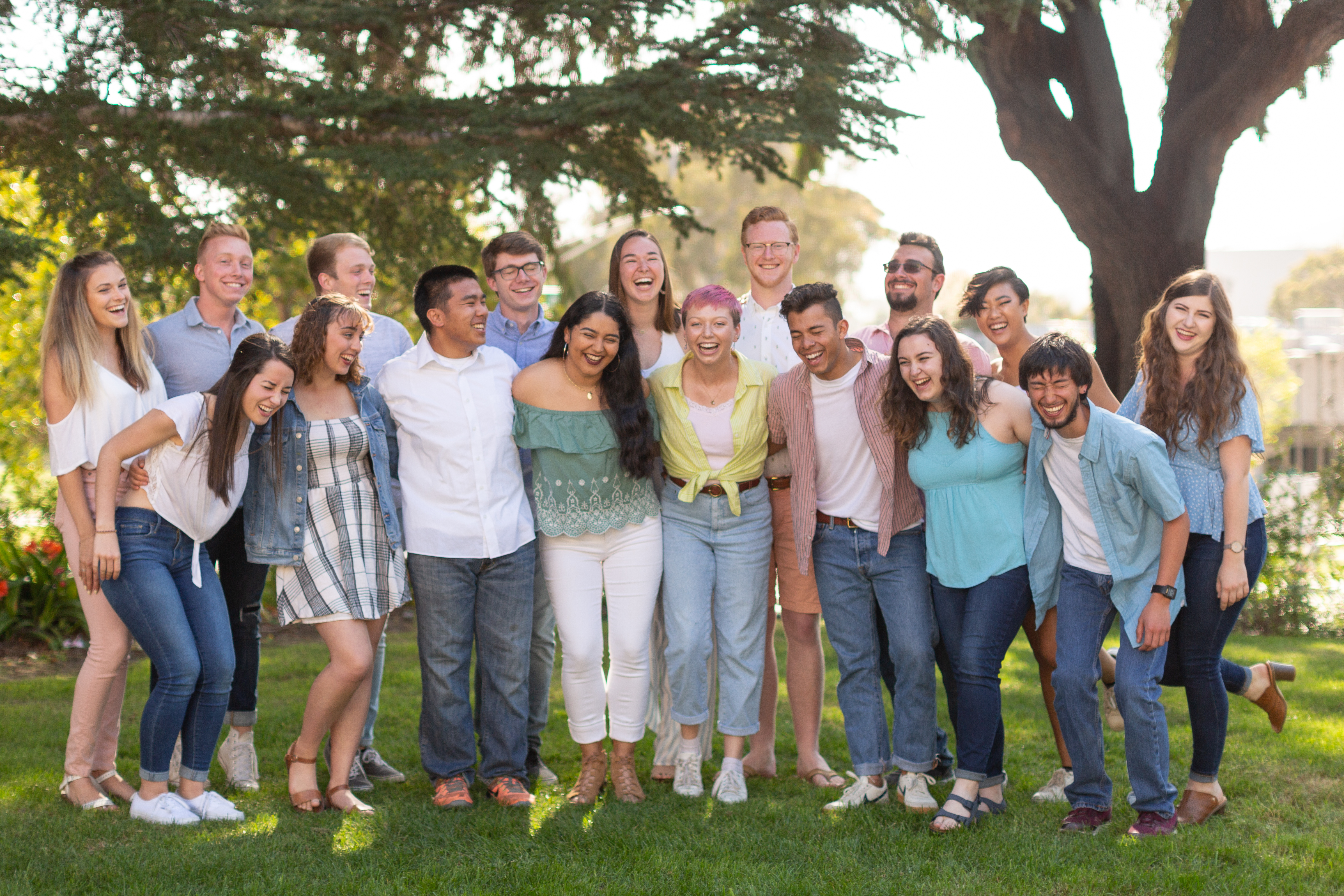
*Photo provided by Rosa López *
Political science and ethnic studies third year Rosa López is always singing. She can be found singing soprano in her acapella group, belting mariachi at Cal Poly’s Día de Los Muertos celebration or even humming to herself while studying.
“Music is my life. I know a lot of people say that and it’s really cliche, but it’s everything to me.”
Rosa López
Like many music major transfers mentioned in previous blog posts, López found support in Cal Poly’s music community.
“Music has connected me to my peers and Cal Poly because I have That’s the Key acapella,” Lopez said. “Without that community, I don’t think I’d be connected to music nor the Cal Poly community in general. It’s basically been the grounding force in my time at Cal Poly.”
That’s the Key (TTK) is a student run acapella group on campus, and López joined the group her sophomore year of college.

*Photo taken by Cody Capella*
Music and psychology sophomore Kylie Capella also found support in That’s the Key.
“The music department definitely has provided a home to me though TTK,” Capella said. “They [members of TTK] would go eat lunch with me, or even just sit with me if they weren’t eating… It’s those little things that mean a lot.”
López explained that one of her favorite parts of singing is telling a story through her voice and facial expressions, and she encourages the rest of the group to do so as well.
“Rosa always makes sure in the midst of making music we remember the purpose of the song; so our music isn’t just music, but that its delivering a special message – and a good one at that,” That’s the Key beat-boxer Brian Ebisuzaki said.
Music has been a refuge to López at Cal Poly, as she’s encountered many obstacles on her educational journey.
López arrived at Cal Poly while her identity as a Mexican-American was under attack. During her first quarter of freshman year, López found herself in the crossfire of the 2016 elections.
“[Trump] started off by announcing his candidacy by saying that all Mexicans were rapists, so coming from a daughter of immigrants and being Mexican … that’s a direct attack at who I am and who my family is,” López said. “Of course I’m going to take offense to that.”
Trump’s rhetoric followed López from the television screen to her classroom, and the day after the elections, the ramifications of Trump’s presidency became all the more real.
“When I was in class … we debriefed the election results and it was still pretty fresh and raw for me,” López said. “I remember one of my classmates saying, ‘well you know, it’s about time they get the illegals out of this country, they all need to be gone.’”
When López explained to her classmate that, by his definition, her parents immigrated to the U.S. illegally, he replied, “‘We don’t want you here.”
Outside of the classroom, there were occasions when students told López to “go back your country,” even though she was born in the United States, she said.
“[I felt] shame for being who I was, and not just being who I was, but for being visibly identified as an ‘other.’ Looking different from my peers was one thing that they could use against me if they felt hostile towards me.”
Rosa López
While López contemplated transferring out of Cal Poly, a friend referred her to Movimiento Estudiantil Chicanx de Aztlán (MEXA), a student run organization designed to support Latinx students in their pursuit of higher education.
“From the moment I walked in those doors … I knew that it was basically my home away from home,” López said. “Listening to the music that I grew up listening to, talking about foods that we all missed from home and just getting to bond over certain things that I knew no one else would be able to relate to. That was the big thing for me, was knowing that there were other students like me.”

*Photo provided by Rosa López*
Though MEXA has provided a home for López, she recognizes that Latinx students who are not Mexican-American may feel excluded by the club.
“There’s kind of this unsaid model of being Mexican-American that you have to fit under. Like, you have to like conchas … you have to speak Spanish, you have to listen to Spanish music,” she said. “You have to have these similar experiences or you don’t fit in right, and that’s very alienating for a lot of folks.”
At a national level, MEXA has debated changing its name to make the organization more inclusive, according to a Mustang News article.
The word “Chicano,” used to be a derogatory term, but in recent years Mexican-Americans have reclaimed the word. Now, it represents their pride in their Mexican ancestry, so some club members don’t want to remove it from MEXA’s title, López explained.
Featuring Chicano in the title of the organization, however, inadvertently excludes non-Chicano Latinx students from the organization. The purpose of changing the name would be to make the club more welcoming to these students, López said, but she’s still skeptical of the name change.
“Ultimately, I don’t know how much good a name change would accomplish, mostly because you can say that you’re trying to be more inclusive, but it’s not about talk – it’s about action,” she said.
As co-chair of MEXA next year, she plans to incorporate workshops and events into the club’s schedule that reach out to both Mexican-American and non-Mexican-American Latinx students.
“What I’m hoping to do in my position next year is to do everything we can … to make those folks who would traditionally feel left out know if they wanted to find a home with us that we are there for them,” she said.
Now that López has found her home at Cal Poly, she is committed to helping other students find a home, too.